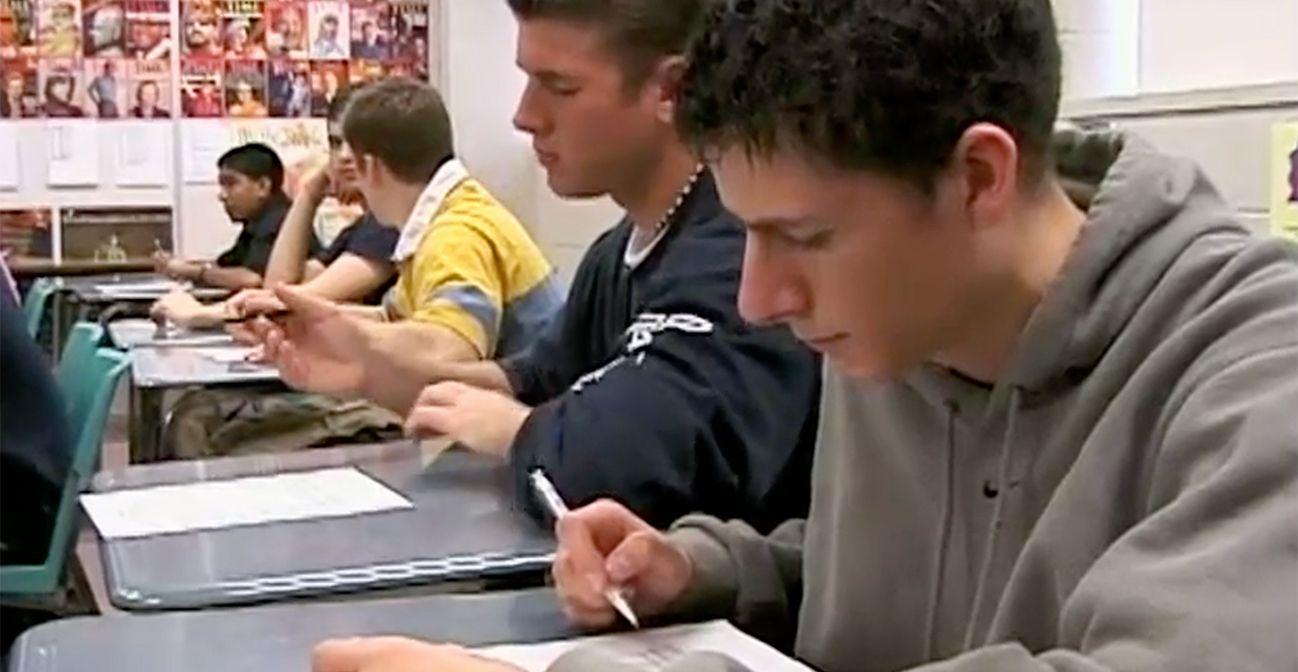Join us for conversations that inspire, recognize, and encourage innovation and best practices in the education profession.
Available on Apple Podcasts, Spotify, Google Podcasts, and more.

Academic Controversy
by David Johnson and Roger Johnson, University of Minnesota Center for Cooperative Learning
Johnson and Johnson have pioneered research on cooperative learning. In this article they provide further guidance on the debate method used by JoEllen Ambrose in this lesson… read more below
by David Johnson and Roger Johnson, University of Minnesota Center for Cooperative Learning
What Is Academic Controversy?
Controversy exists when one person’s ideas, information, conclusions, theories, and opinions are incompatible with those of another, and the two seek to reach an agreement (Johnson and Johnson, 1995). Controversies are inherent in both academic content (intellectual issues exist in every academic discipline and subject area) and cooperative groups (members have different ideas, opinions, and conclusions as they are working together to complete assignments and master learning).
Academic controversy is the instructional use of intellectual conflict to promote higher achievement and increase the quality of problem solving, decision making, critical thinking, reasoning, interpersonal relationships, and psychological health and well-being. To engage in an academic controversy, students must research and prepare a position, present and advocate their position, refute opposing positions and rebut attacks on their own position, reverse perspectives, and create a synthesis that everyone can agree to.
Structured academic controversy is most often contrasted with concurrence seeking, debate, and individualistic learning. To resolve an issue through concurrence seeking, students inhibit discussion to avoid any disagreement and compromise quickly to reach a consensus. In a debate, students present and defend only one position before a judge who ultimately determines who presented the best position. In individualistic learning, students consider issues independently, working on their own with their own set of materials at their own pace. Academic controversy results in more positive outcomes for students compared to concurrence seeking, debate, or individualistic learning.
Why Use Academic Controversy?
There is considerable research evidence validating the use of academic controversy (Johnson and Johnson, 1989, 1995). The positive outcomes for students can be classified into three broad areas:
Structuring Academic Controversy in the Classroom
Academic controversy is a cooperative learning strategy and, therefore, must be carefully structured to include positive interdependence, face-to-face promotive interaction, individual and group accountability, interpersonal and small group skills, and group processing. To teach an academic controversy lesson, teachers must (a) make pre-instructional decisions and preparations (decide on instructional objectives, group size, group formation, room arrangement, instructional materials, and student roles); (b) orchestrate the academic task, cooperative structure, and controversy procedure (explain the task, structure positive interdependence, structure the controversy, structure individual accountability, explain criteria for success, and specify desired behaviors); (c) monitor and intervene (observe interaction among group members, ensure adherence to the controversy procedure, provide academic assistance, and teach controversy skills); and (d) evaluate and process (provide closure, assess and evaluate student learning, and provide group processing and celebration).
The controversy procedure consists of five steps (Johnson and Johnson, 1995):
The Role of Academic Controversy in the Cooperative School
A cooperative school is a conflict-positive organization that teaches students how to manage conflict constructively (Johnson and Johnson, 1994, 1995). To do so (a) a cooperative context must be established, which can be accomplished by using cooperative learning most of the day, (b) academic controversies must be structured in the classroom to maximize learning from intellectual issues and enable students to practice conflict skills daily, and (c) all students must be taught peacemaking procedures so that they can negotiate their interpersonal conflicts and mediate the conflicts of schoolmates when necessary.
References
Johnson, D. W., and R. T. Johnson. (1989). Cooperation and competition: Theory and research. Edina, Minn.: Interaction Book Company.
Johnson, D. W., and R. T. Johnson. (1994). Leading the cooperative school(2nd ed.). Edina, Minn.: Interaction Book Company.
Johnson, D. W., and R. T. Johnson. (1995). Creative controversy: Intellectual challenge in the classroom (3rd ed.). Edina, Minn. Interaction Book Company.
Source: The University of Minnesota Cooperative Learning Center. Copyright © David and Roger Johnson